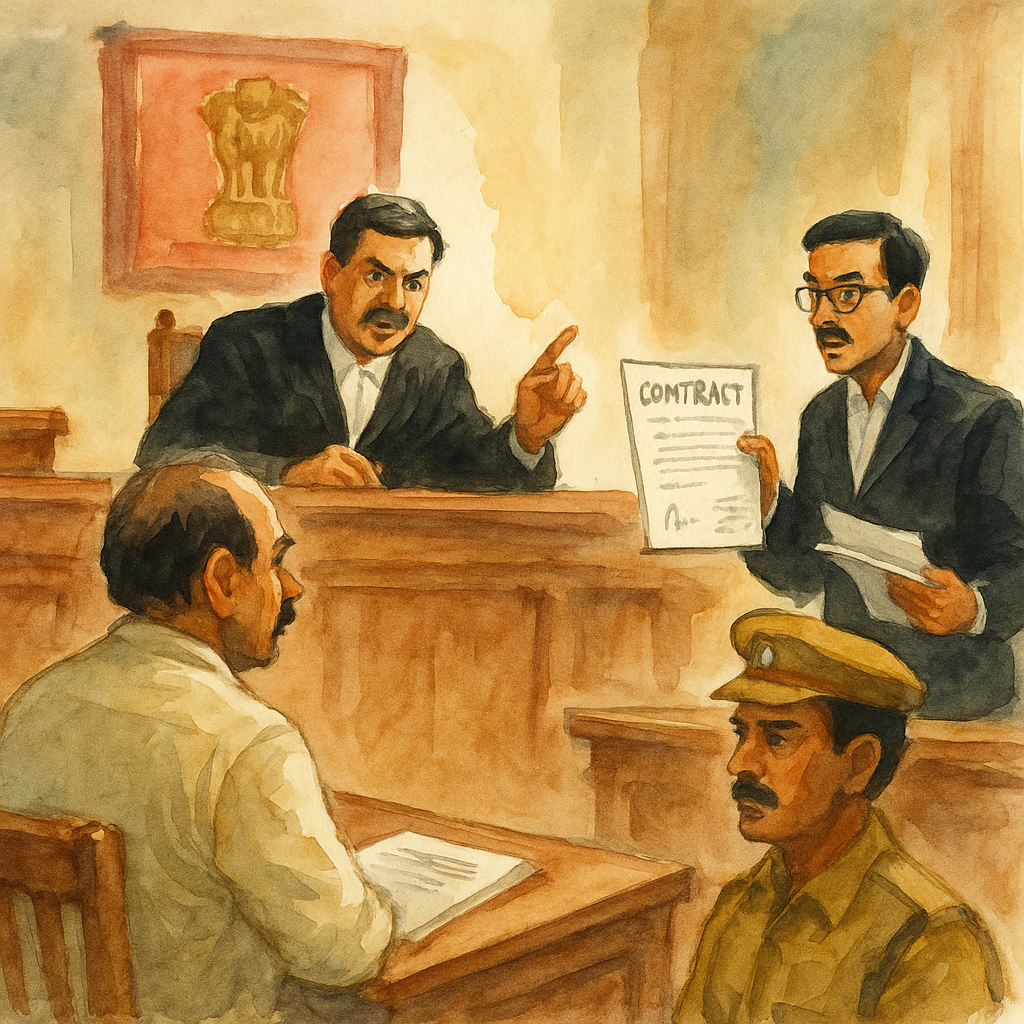In a significant ruling, the Patna High Court has quashed criminal proceedings initiated against a petitioner accused of cheating in a land transaction. The Court held that the dispute was purely civil in nature and the continuation of criminal prosecution would amount to abuse of judicial process.
Simplified Explanation of the Judgment
The petitioner approached the High Court under Section 482 of the Code of Criminal Procedure, seeking quashing of the cognizance order dated 26.07.2013 passed by the Chief Judicial Magistrate, Buxar. The magistrate had taken cognizance of offences under Sections 420 (cheating) and 406 (criminal breach of trust) of the Indian Penal Code.
The dispute arose from a land deal. The informant (Opposite Party No. 2) alleged that he paid ₹12,00,000 to the petitioner for the sale of a plot. However, instead of executing the sale deed in his favor, the petitioner allegedly sold the same land to a third party. Despite repeated demands, the petitioner neither returned the money nor completed the transaction.
The petitioner countered these claims by asserting that the so-called agreement for sale was the result of coercion, and that he had already filed a complaint against the informant alleging forgery. He also highlighted that he had sold the land for ₹16,80,000, a significantly higher value than the amount claimed to have been paid by the informant. Moreover, the delay of over nine months in filing the FIR raised doubts about the credibility of the criminal allegations.
The High Court noted that the informant had already filed a civil suit for specific performance of the agreement, which had been decreed in his favor. An appeal against the decree was pending.
The Court emphasized that merely because money was paid and the land was not transferred does not automatically give rise to a criminal offence. It reaffirmed that civil disputes should not be cloaked in criminal allegations to harass the other party.
Citing the landmark judgment in State of Haryana v. Bhajan Lal (1992 Supp (1) SCC 335), the Court classified the case under Category 7 of that decision — where criminal proceedings are manifestly attended with mala fide intent or instituted to settle personal scores.
Therefore, the High Court allowed the petition and quashed the entire criminal proceeding, including the cognizance order.
Significance or Implication of the Judgment
This judgment reinforces a crucial principle in Indian jurisprudence: criminal law must not be misused to settle civil disputes. The ruling acts as a safeguard against the misuse of criminal process in property and contract-related disagreements. It provides relief to individuals wrongly dragged into criminal litigation for what are essentially contractual or financial disagreements, and encourages aggrieved parties to seek proper remedies through civil courts.
Legal Issue(s) Decided and the Court’s Decision
- Whether criminal prosecution is maintainable in a civil property dispute involving breach of agreement.
→ No. The Court held that the matter was civil in nature and criminal prosecution was an abuse of process. - Whether delay in filing FIR undermines the credibility of the criminal complaint.
→ Yes. A delay of nine months without explanation cast serious doubt on the bona fides of the complaint. - Whether the continuation of proceedings under Sections 420 and 406 IPC was legally justified.
→ No. The Court quashed the entire proceedings.
Judgments Relied Upon or Cited by Court
- State of Haryana v. Bhajan Lal, 1992 Supp (1) SCC 335
- State of Karnataka v. L. Muniswamy, (1977) 2 SCC 699
Case Title
Rang Bahadur Singh v. State of Bihar & Anr.
Case Number
Criminal Miscellaneous No. 50408 of 2014
Citation(s)
2020 (1) PLJR 514
Coram and Names of Judges
Hon’ble Mr. Justice Ahsanuddin Amanullah
Names of Advocates and who they appeared for
- Mr. Bachan Jee Ojha — for the Petitioner
- Mr. Abhay Kumar No. 1, APP — for the State
- Mr. Alok Ranjan — for the Opposite Party No. 2
Link to Judgment
https://patnahighcourt.gov.in/viewjudgment/NiM1MDQwOCMyMDE0IzEjTg==-o0MLwYR0gj8=
If you found this explanation helpful and wish to stay informed about how legal developments may affect your rights in Bihar, you may consider following Samvida Law Associates for more updates.









